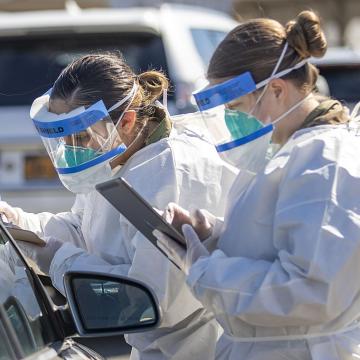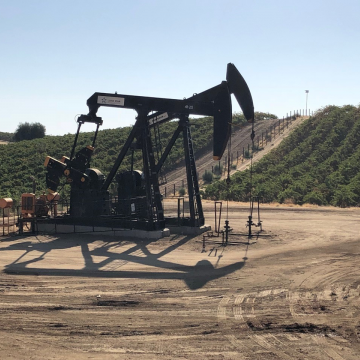-
NewsNew funding will help speed the development of an early-warning system that can predict the probability of malaria outbreaks occurring up to 12 weeks in advance, giving local officials time to put controls in place to prevent or curb the disease’s transmission.
-
NewsMost people are likely to experience an extreme pandemic like COVID-19 in their lifetime, a new study shows.
-
NewsScientists at Duke University have developed a suite of four new tests that can be used to detect coal ash contamination in soil with unprecedented sensitivity.
-
NewsDecades after federal bans ended widespread use of lead-based paint and gasoline, some urban soils still contain lead levels that exceed safety guidelines for children.
-
NewsThe proliferation of pits and ponds created in recent years by miners digging for small deposits of alluvial gold in Peru’s Amazon has dramatically altered the landscape and increased the risk of mercury exposure for indigenous communities and wildlife, a new study shows.
-
NewsThe stringent lockdown imposed by the Chinese government to slow the spread of COVID-19 early this year significantly eased the strain on hospitals there. Admissions due to non-COVID respiratory illnesses decreased by nearly 5,000, a new study by an international team of scientists shows.
-
NewsA new Duke University-led analysis shows that during the early months of the COVID pandemic, the average number of new infections caused by an infected individual (i.e. the basic reproduction number, R0) was 4.5, or more than twice as many as the initial 2.2 rate estimated by the World Health Organization at the time.
-
NewsDuke University researchers have developed a new online calculator that teachers, administrators and students can use to estimate the risk of airborne transmission of the COVID-19 virus in classrooms.
-
NewsGovernments might be able to prevent future pandemics by investing as little as $22 billion a year in programs to curb wildlife trafficking and stem the destruction of tropical forests, a new analysis by an international team of scientists and economists shows.
-
NewsMan’s best friend may also be man’s best bet for figuring out how environmental chemicals could impact our health. Researchers from North Carolina State University and Duke University’s Nicholas School of the Environment used silicone dog tags as passive environmental samplers to collect information about everyday chemical exposures, and found that dogs could be an important sentinel species for the long term effects of environmental chemicals.
-
NewsSmall-scale gold mining in the Peruvian Amazon poses a health hazard not only to the miners and communities near where mercury is used to extract gold from ore, but also to downstream communities hundreds of kilometers away where people eat mercury-contaminated river fish as part of their diet.
-
NewsReusing low-saline oilfield water mixed with surface water to irrigate farms in the Cawelo Water District of California does not pose major health risks, as some opponents of the practice have feared, a study led by Duke University and RTI International researchers finds.
-
NewsPollution declines from pandemic shutdowns may aid in answering long-standing questions about how aerosols influence climate.
-
NewsGlobal methane levels have hit an all-time high after what appears to be a near-record yearly atmospheric increase in the potent greenhouse gas.
-
NewsNew NOAA analysis highlights an alarming trend; experts call for curbing pollution from oil and gas wells











